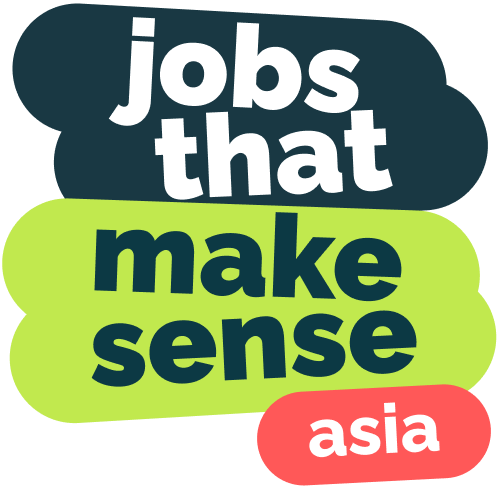First job: how to choose? Free advice that pays off
By Laurent Polet, Co-founder of Primaveras. Professor in management at Centrale Supélec.
Hello! My name is Laurent. Before introducing myself as the co-founder of Primaveras, a school for finding meaning at work, I'd like to say that I'm also a professor in management at the engineering school, Centrale Supélec. Like many of my colleagues, I enjoy accompanying my students in their career choices. Even in a prestigious school, young graduates can feel lost when choosing their first job. That's what I'm here to explain: how to choose... when you have the choice!
I'll start with some examples of situation my students face when they are "lost" about entering professional life. You might recognize yourself in these, and realize that it goes beyond just the engineering profession.
First, there's Rhamza, who can't picture herself in a traditional engineering role but doesn't want to waste her hard-earned knowledge from her years of study. She's drawn to the healthcare field as she's interested in finding a meaningful job, but with people seeking medical training, what career options are truly available?
Next is Maud, whose path seems clearer. Consulting interests her, but she can't distinguish between firms: "I'm attending interviews," she says, "and while I enjoy the projects, the companies feel interchangeable. How do I choose?"
Finally, there's Thomas, who knows he wants to contribute to the ecological transition. He avoids large corporations, frustrated by greenwashing: "It infuriates me when they claim to be climate-conscious, but their actions show profit comes first! Unfortunately, I didn't focus on energy courses, and I think that limits my options."

Don't let past choices limit your present path
While Rhamza, Maud, and Thomas may not yet have a crystal-clear vision for their careers, they all harbor an embryonic idea – not of the perfect job, but of a fulfilling direction. The real challenge lies in choosing how to pursue that direction. And often, they share a fear: that their first job will set the course for their entire career, and any wrong turn now will haunt them forever.
In short, there is a lot of pressure to make the right choice!
This pressure to make the "right" choice stems from an ingrained belief in a single, optimal path, that there is one choice that is better than the other. The myth of the ideal job, nurtured by years of striving for the best grades, the best degree, the best school, clouds their vision. But for Rhamza, Maud, and Thomas, career success doesn't lie in pre-determined boxes. They're not driven by titles, salaries, or prestige. They seek something more meaningful, something that resonates with their values and aspirations. Therefore, if today you recognize yourself in these doubts, it is because you will have to choose differently than the way you have chosen until now in your studies!
Choosing the right manager rather than the right job
Instead of obsessing over finding the "perfect" position, consider prioritizing the right manager.
Think of it this way: If you accept that there's no single best job for you, that your path might be fluid and evolving, meeting the right manager can be a game-changer. They become your mentor, your guide, your partner in growth. Your first job is crucial not just for acquiring skills but for discovering who you truly are as a professional, gaining valuable experiences, and building invaluable confidence. And you will quickly understand that this advice applies to your entire professional life!
Let's take the problem in reverse. Imagine yourself in a company with a great mission but in which your direct manager is absent or super controlling? Imagine that Rhamza manages to get a job offer, very well paid, in the most famous firm in Paris, for a mission with lots of international travel, in contact with large groups, but that she is under crazy pressure, has to report daily to her manager who does not allow her any autonomy because they are strategic clients of the firm.
On the other hand, Thomas could look for jobs or missions, no matter which ones, as long as they are in the energy transition. He would apply to ads he finds on the Jobs that makesense platform. Even if he hesitates, at least it attracts him. Thanks to an application, here he is in front of the manager who will recruit him tomorrow! A manager who will give him responsibilities, who will support him, who will check up on him, and who will allow him to improve his skills and even to respond to his desire to do projects that appeal to him... and that will change everything for him!
So, how do you recognize this "right" manager? Pay attention during interviews and conversations. Ask yourself: Did the interaction feel natural? Did you feel heard and understood? Did time fly by in a seamless dialogue? Could you picture yourself working with him and in their team, surrounded by a positive atmosphere? In short, do you see yourself working with him every day?
Remember, you spend a significant part of your work life with your manager. They're your sounding board, your advisor, your cheerleader. If the feeling isn't right, trust your gut and move on. A bad hour can turn into years of frustration.
Choosing the right manager doesn't guarantee a fairytale career, but it shifts the focus from a singular "perfect job" to a fulfilling journey of exploration and growth. It's about finding someone who believes in you, who champions your potential, and who guides you towards a career that's not just a job, but a path to purpose.
What if your work could change the world?
Discover positive impact jobs in Philippines, Singapore, or Thailand on jobs that makesense Asia.
When the right choice is made
To get to this stage, you naturally need to meet managers! You could oppose this prerequisite and tell me that before choosing someone with whom you have a rapport, you must have the possibility of having your CV selected. And that would be fair. To do this, you have two ways of doing things. Either you apply to job openings, or you investigate.
Yes, it is also possible to investigate! An example will speak for itself. Take Maud, for example. I advised her to meet people who work in the health sector. Any contact she may have, any meeting she may initiate will enable her to question the type of positions, jobs, projects, missions, which may echo a technical subject in this field. This will allow her to investigate and see "places" that may be of interest to her. And one thing leading to another, she will undoubtedly be directed towards professional contexts (public structures, research centers, consulting firms, etc.) that will allow her to better understand what she can do there. And who knows, she may meet a manager on this occasion. And who knows, this manager might have a job to fill. And who knows, this manager could be the one who will allow her to blossom in her first job?
When you have studied, the moment when you take the plunge into professional life is always a source of apprehension. It's normal and healthy to wonder about it. However, when there are doubts, it is essential to think differently. It is also to help these moments that Primaveras has imagined a special coaching for young graduates. The right way is always to go ahead, even if you are not completely sure... after all, you are not risking anything!

